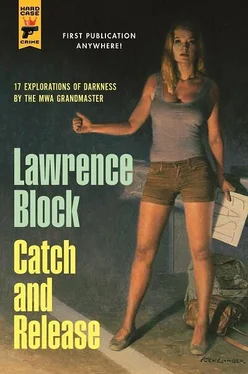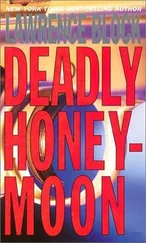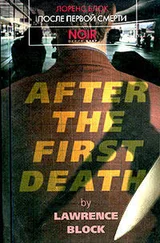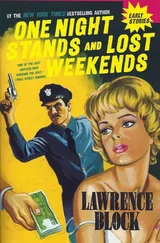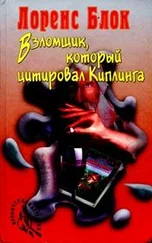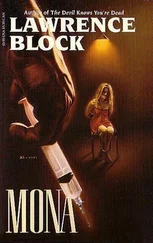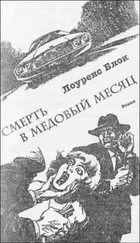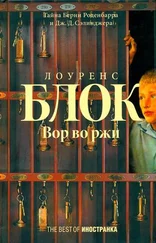Kristin clasped her hands, looking like Lois Lane. “My hero,” she said.
It’s not impossible to take me by surprise, but I can’t think of anything that did so more utterly than Mick’s announcement of his upcoming marriage to Kristin. It was at Grogan’s that I learned of it, after some preliminary speculation on what happens after you die. I’d been bracing myself for bad news when he asked me to be his best man.
Elaine swears she saw it coming, and can’t imagine how I didn’t.
Kristin came into our lives when her parents left theirs, the victims of a particularly horrible home invasion. The madman who orchestrated it wasn’t finished; he wanted her and the house and the money, and it didn’t stop him when I spiked his first try. He came back a few years later, and didn’t miss by much.
I got Mick to baby-sit her, confident that no one would get past him. They sat in the kitchen of her brownstone. They drank coffee and played cribbage. I suppose they talked, though I couldn’t guess what they talked about.
That’s the same house in which she discovered her parents’ bodies. She went on living there, because she is far tougher at the core than you’d think, and she lives there now as my friend’s wife, and if they’re as unlikely a couple as Beauty and the Beast, you lose sight of the disparity after a few minutes in their company. He’s a big man, hard and forbidding as an Easter Island monolith, and she looks to be a frail and slender slip of a girl. He’s forty years her senior. She’s a child of privilege, while he’s a Hell’s Kitchen hoodlum who’s killed grown men with his hands.
And she settles her hand on his arm, and beams while he tells his stories.
There was a silence, with an unasked question hovering. Elaine broke the one and asked the other. Did he regret the sale?
“No,” he said, and shook his head. “Why should I? I could run it a thousand years and not take twenty million dollars out of it. And if it’s a neighborhood institution, and enough people felt they had to say so last night, well, it’s one the neighborhood’s well off without.”
“There’s history here,” I said.
“There is, and most of it misfortunate. Crimes planned, oaths sworn and broken. You were here on the worst night of all.”
“I was remembering it just now.”
“How could you not? Two men in the doorway, spraying bullets as if they were watering the flowers. One tosses a bomb, and I can see the arc of it now, and the flash before the sound of it, like lightning before thunder.”
The room went still again, until Mick got to his feet. “We need music,” he announced. “They were supposed to come this afternoon for the Wurlitzer, the truck from St. Vincent de Paul. The creature’s not old enough to be valuable or new enough to be truly useful, but they said they’d find a home for it. If they get here tomorrow or Monday they’re welcome to it, assuming I’m here to let them in. On Tuesday the building changes hands, and what’s in it belongs to the new owner, and most likely goes into a landfill along with the bricks and floorboards. You haven’t any use for it, have you? Or a two-ton Mosler safe? I didn’t think so. What would you like to hear?”
Elaine and I shrugged. Kristin said, “Something sad.”
“Something sad, is it?”
“Something mournful and Irish.”
“Ah,” he said. “Sure, that’s easily arranged.”
I remembered an evening some years earlier. Elaine and I on our way out of the Met at Lincoln Center, the last strains of La Boheme still resounding. Elaine in a mood, restless. “She always fucking dies. I don’t want to go home. Can we hear more music? Something sad, it’s fine if it’s sad. It can break my fucking heart if it wants. Just so nobody dies.”
We hit a couple of clubs, wound up downtown at Small’s, and by the time we got out of there the sun was up. And her mood had lifted.
Irish songs on the ground floor of a Hell’s Kitchen tenement may be a far cry from jazz in a Village basement, but it served the same purpose, drawing us down into the mood as a means of easing us through it. I don’t remember exactly what Mick selected, but there were Clancy Boys and Dubliners cuts, and some ballads of the 1798 Rising, including a rendition of Boolavogue with a clear tenor voice backed by a piper’s keening.
That was the last record to play, and it would have been a hard one to follow. I was put in mind of the Chesterton poem, and trying to remember just how it went when Elaine read my mind and quoted it:
For the great Gaels of Ireland
Are the men that God made mad,
For all their wars are merry,
And all their songs are sad.
“I wonder,” Mick said. “Is it just the Irish? Or are we all of us like that, deep in our hearts?” He got to his feet, picked up his bottle and glass. “That’s enough whiskey. Is it iced tea you’re all drinking? I’ll fetch us another pitcher.” And to Kristin: “No, don’t get up. ’Tis my establishment still. I’ll provide the service.”
He said, “Will I miss it? The short answer is it’s a bar like any other, and I’ve lost my taste for them, even my own.”
“And the long answer?”
He gave it some thought. “I expect I will,” he said. “The years pile up, you know. The sheer weight of them has an effect. I wasn’t always on the premises, but the place was always here for me.” He filled his glass with iced tea, sipped it as if it were whiskey. “The room is full of ghosts tonight. Can you feel it?”
We all nodded.
“And not just the shades of those who died that one bad night. Others as well, whose deaths were somewhere else altogether. Just now I looked over at the bar and saw a little old man in a cloth cap, perched on a stool and nursing a beer. I pointed him out to you once, but you wouldn’t remember.”
But I did. “Ex-IRA,” I said. “If it’s the fellow I’m thinking of.”
“It is. One of Tom Barry’s lads in West Cork he was, and that lot shed enough blood to redden Bantry Bay. When his regular local closed he brought his custom here, and drank a beer or two seven nights a week. And then one night he wasn’t here, and then the word came that he was gone. No man lives forever, not even a wee cutthroat from Kenmare.”
He pronounced it Ken-mahr. There’s a Kenmare Street a few blocks long in NoLita, which is the tag realtors have fastened on a few square blocks north of Little Italy. A Tammany hack called Big Tim Sullivan managed to name it for his mother’s home town in County Kerry, but he couldn’t make people pronounce it in the Irish fashion. Ken-mair’s what they say, if indeed they say the name at all; the residents nowadays are mostly Chinese.
“Andy Buckley,” he said. “You remember Andy.”
That didn’t require an answer. I could hardly have forgotten Andy Buckley.
“He was here on that bad night. Got us into the car and away, the two of us.”
“I remember.”
“As good behind the wheel of a car as any man I’ve ever known. And as good with darts. He’d scarcely seem to be paying attention, and with a flick of his wrist he’d put the little feathered creature just where he wanted it.”
“He made it look effortless.”
“He did. You know, when I had them put this place back together again, I bought a new dartboard and had it installed in the usual place on the back wall. And I found I didn’t like seeing it there, and I took it down.” He took a deep breath, held it, let it out. “I had no choice,” he said.
Andy Buckley had betrayed Mick, his employer and friend. Sold him out, set him up. And I’d been there on a lonely road upstate when Mick took Andy’s head in his own big hands and broke his neck.
Читать дальше
